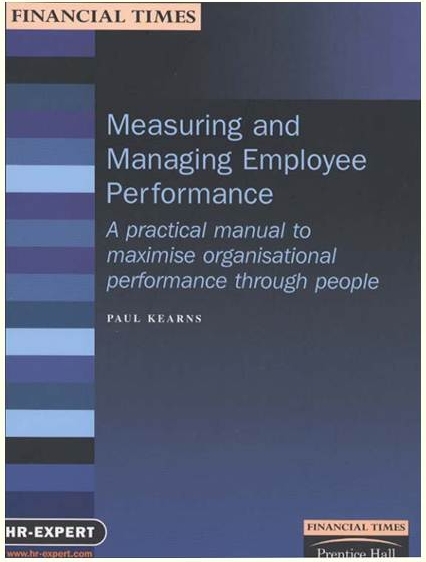How long does it take for mature thinking in HR to take hold? Let’s consider this question in relation to how the problematic topic of performance management has fared over the last 20 years or so. Back in 2000, I wrote in my book “Measuring and managing employee performance” (Financial Times Executive Briefings series) –
“Why traditional appraisal schemes don’t work
Perhaps the bluntest instrument in the Personnel department’s armoury has always been the traditional appraisal scheme. The one-to-one discussions between supervisor and subordinate have become a very tired old idea.”
Adding for good measure –
“My own simple view about appraisal is that good managers don’t need it and bad employees don’t want it.”
Yesterday I came across this quote in “Building a High-Performance Culture: A Fresh Look at Performance Management” published in 2012 as part of the SHRM Foundation’s Effective Practice Guidelines Series –
“Decades of research and practice have been devoted to understanding and improving performance management in organizations. Yet the traditional performance review process continues to be painful and ineffective for both managers and employees. In many cases, the focus on improving formal systems has not achieved the desired results.”
One of the companies I referred to in 2000 was Zeneca (now AstraZeneca) who had brought in a new performance management scheme way back in 1992 (reported at the time in the institute magazine ‘Personnel Management’). I told the story of speaking at a performance management conference in 1996. Having prepared a slide ridiculing Zeneca’s old scheme I noticed two Zeneca delegates were on the list of attendees. So …
“For a split second, I considered pulling this particular slide but then thought, what the hell, and decided to go ahead with it. Only this time, I mentioned to the audience that we had some delegates from Zeneca in the audience and I wondered how they might respond to my criticism. To this challenge one of the Zeneca delegates responded with a wry smile, and just said quietly, “oh, we have moved onto something else since then.”
They have kept “moving on” to such an extent that AstraZeneca is in big trouble today. Its drug pipeline is drying up and it is relocating its entire UK R&D function in a desperate attempt to get it to perform better. If it had been more mature in managing performance 20 years ago it might not be in this mess. It would already have the sort of culture now espoused by SHRM’s booklet –
“ In fact, research shows that what truly increases employee performance and engagement is not annual reviews, but the day-to-day process of managers communicating expectations, providing feedback and leveraging employee talents.”
Only 10 days ago someone referred to my old book which he bought back in 2000. He remarked –
“Anyone who asks me about performance management I steer them in the direction of your book. I like the approach that you take in it because it “not only looks at the specifics of employee performance measurement but the context in which we have to apply it”
In other words, context, especially cultural context, is everything.
This “day-to-day process of managers communicating expectations, providing feedback and leveraging employee talents” is easy to say but actually demands a very mature and sophisticated organizational culture. Performance is, and always was, a much greater issue than the mechanistic processes installed by HR teams over the last two decades. If anything, in the light of the many executive bonuses that have rewarded failure, it could be argued that performance management has often done more harm than good. Let’s see if the new CEO of AstraZeneca earns his. If you have any shares be prepared to sell.

Comments are closed